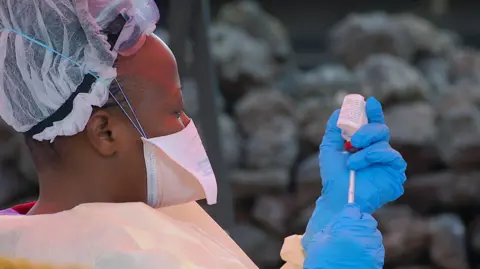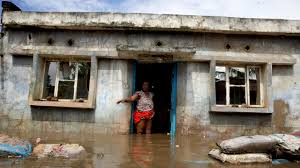At least 15 people have died in the Democratic Republic of Congo (DRC) following a new outbreak of the Ebola virus, the country’s health ministry has confirmed. Authorities say the deadly disease has re-emerged in Kasai Province, where 28 suspected cases have been recorded so far. The outbreak has raised fresh concerns in a nation that has struggled repeatedly with Ebola and continues to face challenges such as weak healthcare infrastructure and ongoing conflict in its eastern regions.
The outbreak was first detected after a 34-year-old pregnant woman was admitted to hospital last month with severe symptoms including high fever and persistent vomiting. Her condition deteriorated rapidly, and she died within hours from multiple organ failure. Laboratory tests later confirmed the presence of the Zaire strain of Ebola, one of the most lethal forms of the virus.
Health officials have urged communities to strictly follow preventive measures to curb transmission. These include regular handwashing, avoiding direct contact with infected individuals, and practicing social distancing in high-risk areas. Four health workers are among those who have already lost their lives, raising alarm about the vulnerability of frontline responders.
The World Health Organization (WHO) said it is working closely with Congolese health authorities to contain the outbreak and prevent it from spreading further. “Case numbers are likely to rise as transmission is ongoing. Response teams and local health officials are actively tracing people who may have been exposed to ensure they receive immediate care and protection,” the WHO said in a statement. The organization added that it is “acting with determination to rapidly halt the spread of the virus and protect communities.”
Despite the urgency of the situation, health experts say the country is better prepared than in past outbreaks. The DRC has a stockpile of Ebola treatments as well as 2,000 doses of the Ervebo vaccine, which has proven effective in protecting against the Zaire strain. Vaccination campaigns are expected to be rolled out quickly in affected areas to stop the virus from spreading further.
The DRC is no stranger to Ebola. The country has endured 16 outbreaks since the virus was first discovered in 1976 near the Ebola River. The most recent outbreak occurred three years ago, killing six people. An earlier epidemic between 2018 and 2020 claimed more than 2,000 lives, making it one of the deadliest Ebola crises in recent history.
Ebola is a rare but often fatal viral disease believed to originate in fruit bats. It spreads through direct contact with blood, vomit, feces, or other bodily fluids of infected individuals, particularly when broken skin or mucous membranes such as the mouth and nose are exposed. With its rapid progression and high fatality rate, Ebola outbreaks often trigger global concern and require swift, coordinated responses.
Officials are warning that the coming days will be crucial in determining whether this new outbreak in Kasai Province can be contained quickly or if it risks escalating into a wider public health emergency. Communities are being urged to remain vigilant, follow safety guidelines, and report suspected cases immediately to health authorities.
The deaths of health workers, the ongoing rise in suspected infections, and the repeated recurrence of the virus highlight the urgent need for stronger healthcare systems and sustained international support. As DRC battles its 16th Ebola outbreak, the world is once again reminded of the deadly threat the virus poses and the importance of collective action in preventing another large-scale epidemic.














Leave a comment